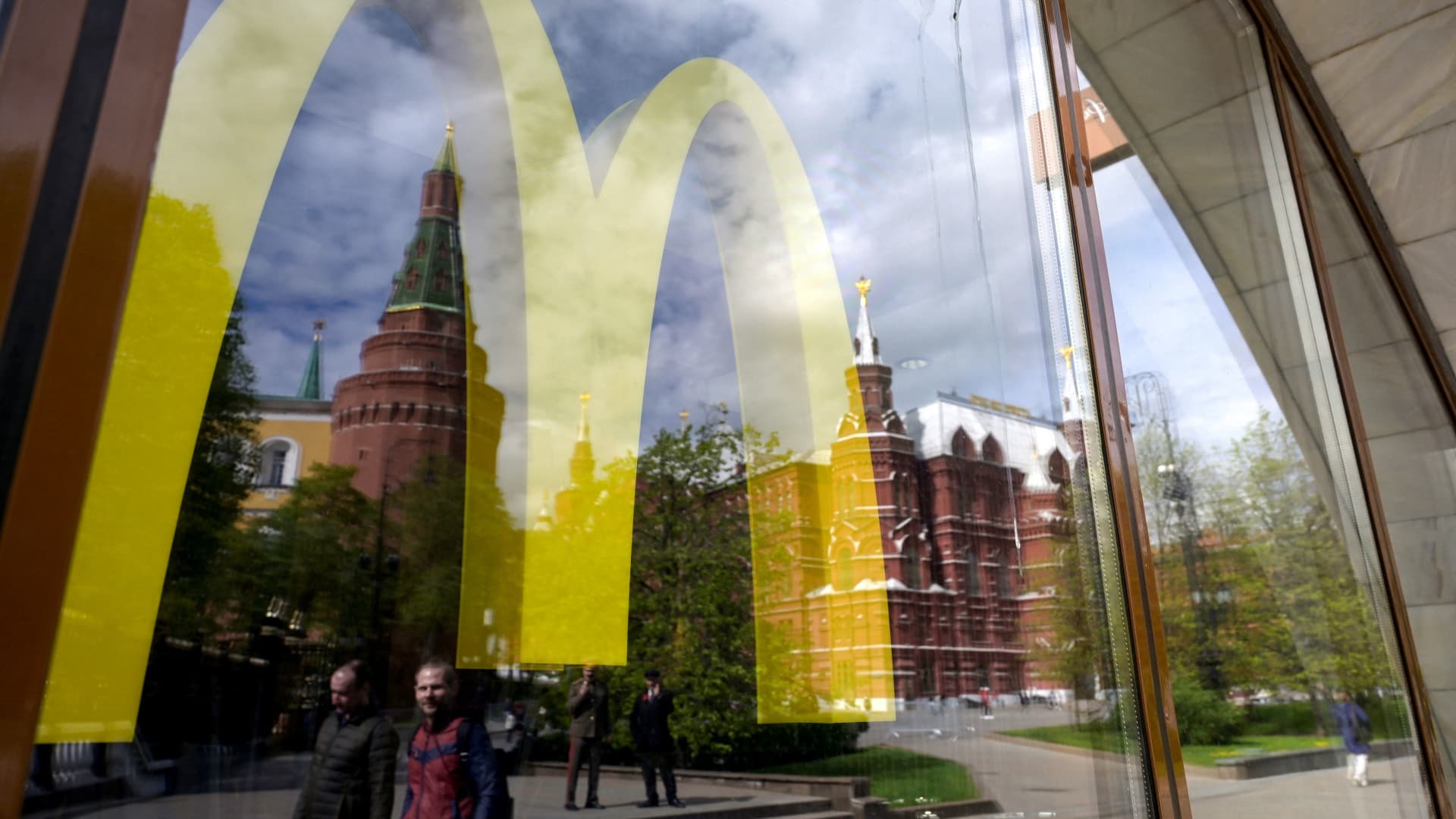
The Kremlin’s towers and passers-by are seen reflected in the window of a closed McDonald’s restaurant in Moscow on May 16, 2022.
Natalia Kolesnikova | AFP | Getty Images
McDonald’s said Thursday it has struck a deal to sell its Russian business to Alexander Govor, its current licensee in the market.
Govor will acquire all of McDonald’s locations in Russia and will operate them under a new brand. He also agreed to retain employees for at least two years, on equivalent terms, and fund the salaries of corporate employees who work in 45 regions of the country until the deal closes and existing liabilities to suppliers, landlords and utilities.
Financial terms of the deal were not disclosed.
McDonald’s said Monday that it expects to record a noncash charge of $1.2 billion to $1.4 billion related to its net investment in Russia and foreign currency losses.
The sale is expected close in the coming weeks if it secures regulatory approval. It spells the end of an era for the fast-food giant, which first entered the country just months before the Soviet Union dissolved.
“McDonald’s in Russia embodied the very notion of glasnost and took on outsized significance,” CEO Chris Kempczinski wrote in a letter to the McDonald’s system on Monday after the company announced its intent to sell.
In the three decades since opening its first location in Moscow, McDonald’s had grown its Russian business to roughly 850 locations. The company owned about 84% of those restaurants, while the rest were operated by franchisees. Owning more of its restaurants generates greater revenue for the company, but opens it up to greater risk in times of turmoil or economic downturn.
In early March, after the Kremlin invaded Ukraine, McDonald’s said it would temporarily shutter its Russian locations. The company said in late April that the suspension of its operations in Ukraine and Russia due to the war cost it $127 million during the first quarter. And on Monday, it revealed it was planning to sell the business.
“Some might argue that providing access to food and continuing to employ tens of thousands of ordinary citizens, is surely the right thing to do. But it is impossible to ignore the humanitarian crisis caused by the war in Ukraine,” Kempczinski said in his letter.
Other Western companies are also opting to sell their Russian businesses, including automaker Renault and oil giant Exxon Mobil.
Govor operates 25 McDonald’s locations in Siberia and has been a licensee of the fast-food chain since 2015.







